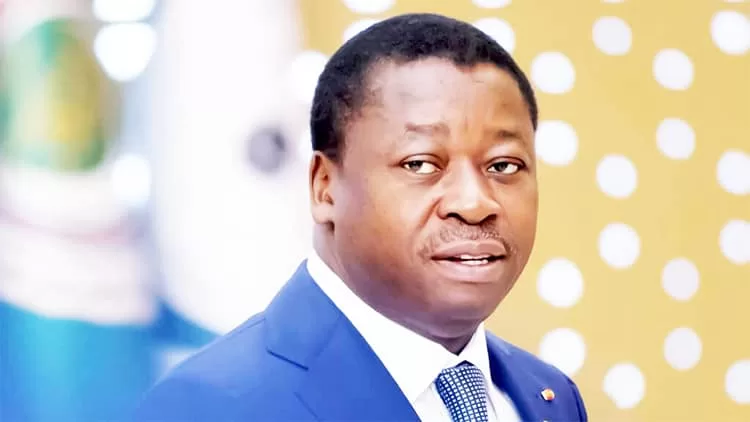Focused on consolidating his almost two decades grip on power, Togolese President Faure Essozimna Gnassingbe has reintroduced a contentious constitutional reform bill to parliament for a second reading.
The legislation, initially passed by parliament on Monday, has faced criticism from opposition parties who view it as a power consolidation move by Gnassingbe, who took office in 2005 following the death of his father, General Gnassingbé Eyadéma.
General Eyadema came to power in 1967 via a military coup, later transmuted to a civilian President and ruled the tiny West African country till February 5th, 2005 when he died. The controversial assumption of office by his son, Faure following his death led to a political crisis which was later resolved by a regional bloc, ECOWAS.
The reintroduction of the bill comes ahead of legislative and regional elections scheduled for April 20.
The proposed reform would allow lawmakers to elect the president, a change that has stirred controversy and sparked protests in Togo. Critics argue that the amendment would further entrench Gnassingbe’s grip on power and undermine democratic principles in the country.
The opposition has voiced concerns over the timing of the reform, alleging that it is a calculated move by the ruling party to manipulate the electoral process.
Meanwhile, Gnassingbe’s administration has defended the reform, arguing that it aims to modernize Togo’s political system and enhance governance structures. Proponents of the bill are of the view that allowing lawmakers to elect the president would promote stability and continuity in leadership. However, opponents remain sceptical, expressing fears that the proposed changes could lead to a concentration of power in the hands of the ruling party.
The reintroduction of the bill for a second reading signals a renewed push by Gnassingbe’s government to enact the constitutional reform despite mounting opposition. As Togo prepares for upcoming elections, the political landscape remains tense, with divisions deepening between the ruling party and opposition groups. The outcome of the legislative process on the reform bill is likely to have significant implications for the future direction of governance in Togo.
Discover more from The Source
Subscribe to get the latest posts sent to your email.








